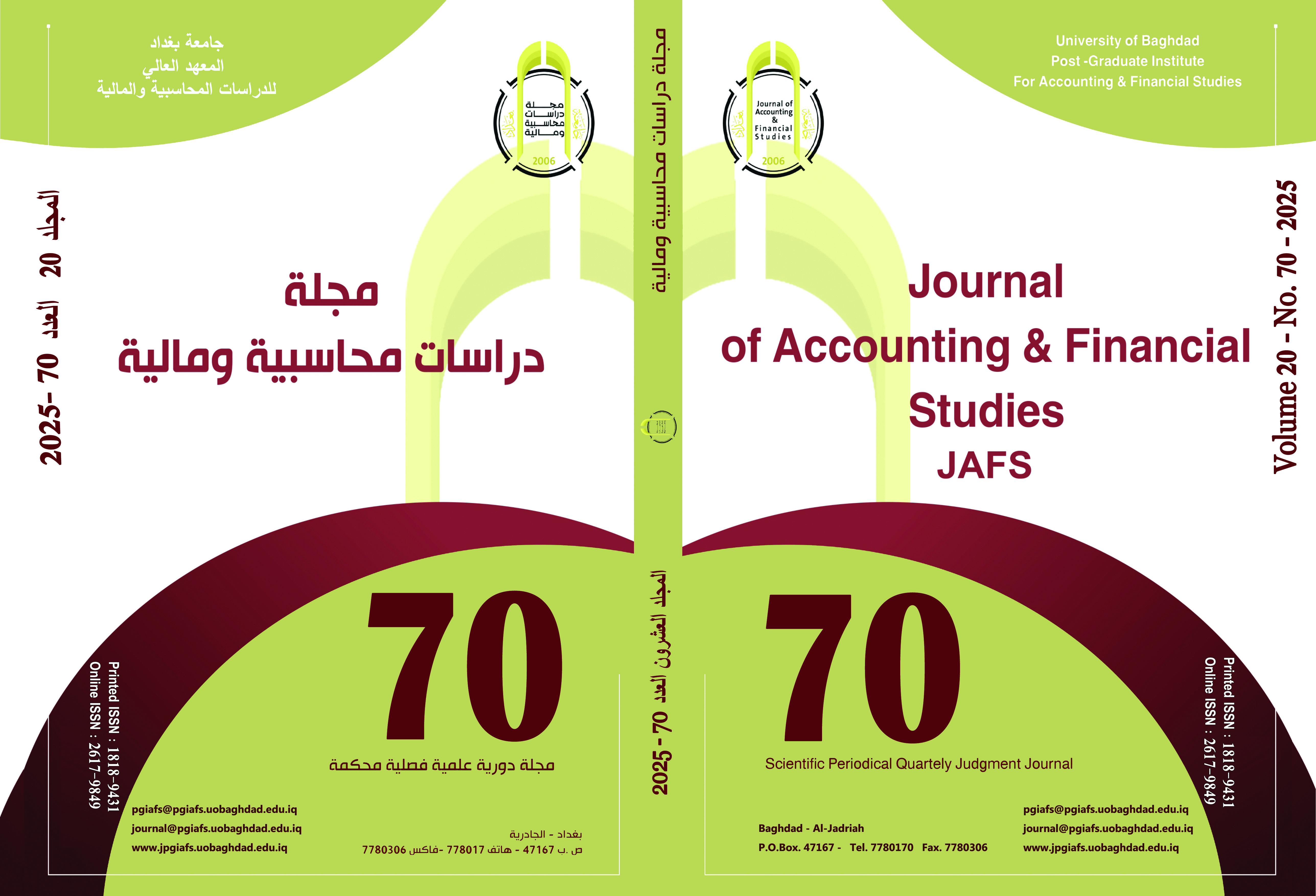دور قياس تكاليف التصنيع المستدام باستخدام اسلوب التنفيذ المتسارع في تخفيض التكاليف
DOI:
https://doi.org/10.34093/5gcktq83الكلمات المفتاحية:
التصنيع المستدام، التنفيذ المتسارع، الصناعة الانشائيةالملخص
يعد التصنيع المستدام أحد الأساليب التي تتبعها الصناعة الانشائية لتحقيق الاستدامة وتنفيذ مشاريع انشائية تكون صديقة للبيئة. لذا أصبح استخدام التصنيع المستدام في الصناعة الانشائية مطلبًا ضروریًا من المتطلبات البیئیة الحدیثة المھمة التي تساعد على تحقیق مستویات مرتفعة من الحمایة البیئیة وتقلل الآثار السلبیة للتلوث ويعد أسلوب التنفيذ المتسارع أحد الطرق المستخدمة لتقليل الجدول الزمنية لمشاريع البناء من حيث الوقت والتكلفة وبالشكل الذي يؤدي إلى تسليم المشروع بأكثر كفاءة مقارنة مع استخدام الطرق التقليدية، اذ يهدف البحث الى بيان المرتكزات المعرفية للتصنيع المستدام والتنفيذ المتسارع، فضلا عن تطوير الية لتخفيض التكاليف في الصناعة الانشائية مع وضع خطط للسيطرة على عامل الوقت والتكلفة من خلال الاعتماد على الية عمل التنفيذ المتسارع في قياس تكاليف التصنيع المستدام للمشروع. ولتحقيق ذلك اعتمد البحث على المنهج الوصفي فيما يتعلق بالجانب النظري للبحث وذلك من خلال الاعتماد على الكتب والرسائل والأطاريح والمقالات الأجنبية والعربية المتعلقة بموضوع البحث، اما الجانب العملي للبحث اعتمد على قياس تكاليف التصنيع المستدام باستخدام أسلوب التنفيذ المتسارع في تخفيض التكاليف عند تطبيقه على مشروع بوابة العراق وذلك بالاعتماد على البيانات المالية والمقابلات الشخصية بالمهندسين والعاملين، اذ توصل البحث الى مجموعة من الاستنتاجات أهمها ان تكاليف التصنيع المستدام باستخدام التنفيذ المتسارع تساهم في تخفيض التكاليف وتقليل وقت انجاز المشروع في مدة أقصر من الطرق التقليدية وتقليل الموارد الطبيعة لتكون أكثر استدامة فضلا عن الانبعاثات والغازات المنبعثة المتولدة من المشروع، فضلا عن مساهمة تكاليف التصنيع المستدام بأعطاء صورة كاملة عن استعمال المواد والطاقة والتي تدخل في مراحل التنفيذ المشروع والتي تحقق التوازن بين المؤشرات البيئية والاقتصادية والاجتماعية مع توصل البحث الى مجموعة من التوصيات من اهمها ضرورة استعمال تكاليف التصنيع المستدام باستخدام التنفيذ المتسارع لغرض تخفيض تكاليف الصناعة الانشائية.
التنزيلات
منشور
إصدار
القسم
الرخصة
يتمّ نقلُ حقوق النّشر إلى المجلّة عند إخطار الباحث بقَبول بحثه المقدّم للنّشر في المجلّة.





